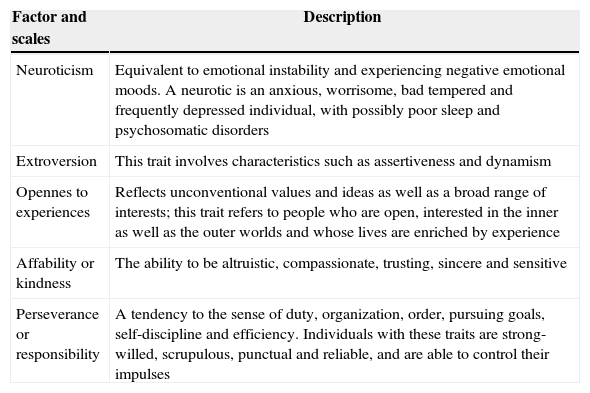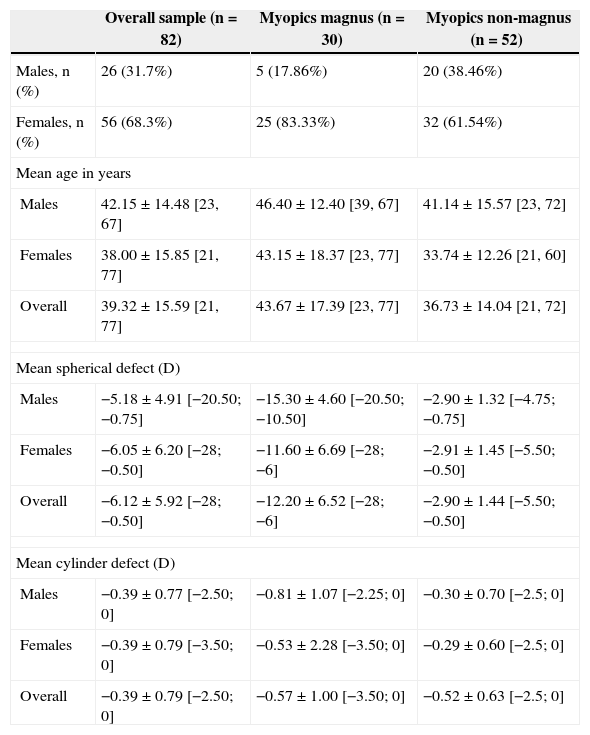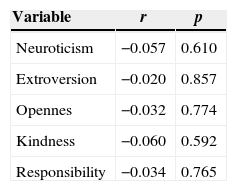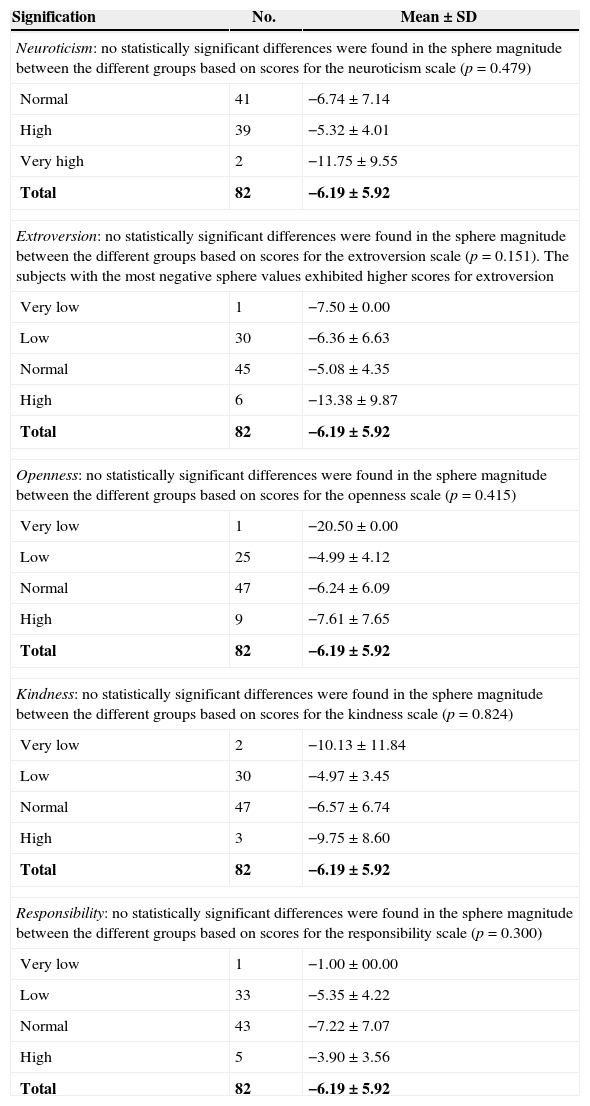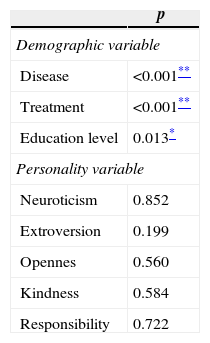To study the correlation between the myopic refractive error and certain personality traits, and to determine whether there is a correlation between the degree of myopia and an increased frequency in personality disorders.
MethodsCross-sectional observational multicenter study conducted on 82 subjects (26 men, 56 women) age over 18 years with myopia (spherical defect≤−0.5D), with 30 subjects having high myopia (<−6D). Data collected: age and gender, academic level, result in the Neo PI-R personality test, autorefractometry, myopic pathology, and ophthalmological treatment.
ResultsCorrelation (Spearman's) between the magnitude of the spherical defect and the 5 personality traits studied in the total sample was not statistically significant: neuroticism (−0.057; p=.610), extroversion (−0.020; p=.857), openness (−0.032; p=.774), kindness (−0.060; p=.592), and responsibility (−0.034; p=.765). By dividing them into subgroups of low and high significance (t-test), a significant (p=.002) upward trend of the myopic defect with increasing scores on extraversion was found.
When comparing high myopic subjects to the non-high myopic ones, there were significant differences between the 2 groups in terms of the associated pathology (p=.001), received treatment (p=.001) and the level of studies (p=.013). There were no differences in the variables of personality: neuroticism (p=.852), extroversion (p=.199), openness (p=.560), kindness (p=.584), and responsibility (p=.722).
ConclusionsA low correlation was found between myopia and personality. There was no difference in the degree of myopia between the groups with different education levels. Subjects with more severe ocular pathology associated with myopia had higher scores in neuroticism, without finding any significant association.
Estudiar la correlación entre el error refractivo miópico y determinados rasgos de personalidad. Igualmente, se pretende determinar si existe correlación entre el grado de miopía y una mayor frecuencia de trastornos de la personalidad.
MétodosEstudio transversal observacional multicéntrico. La muestra la formaron 82 sujetos (26 hombres, 56 mujeres) mayores de 18 años con miopía (defecto esférico≤−0.5D); 30 eran miopes magnos (<−6D). Datos recogidos: edad y sexo, nivel de formación, resultado en el inventario de personalidad Neo PI-R, autorrefractometría, enfermedad miópica, tratamiento oftalmológico.
ResultadosNo se encontró correlación (rho de Spearman) estadísticamente significativa entre el defecto esférico y los rasgos de personalidad estudiados en el total de la muestra: neuroticismo (−0.057; p=0.610), extraversión (−0.020; p=0.857), apertura (−0.032; p=0.774), amabilidad (−0.060; p=0.592), responsabilidad (−0.034; p=0.765). Al agruparlos por subgrupos de alta y baja significación (t-test), se halló una tendencia al aumento del defecto miópico con la extraversión, que resultó significativa (p=0.002).
Al comparar miopes magnos y el resto, se vio que existían diferencias significativas entre ambos grupos en cuanto a la enfermedad asociada (p<0.001), el tratamiento recibido (p<0.001) y el nivel de estudios (p=0.013), no así en las variables de personalidad: neuroticismo (p=0.852), extraversión (p=0.199), apertura (p=0.560), amabilidad (p=0.584), responsabilidad (p=0.722).
ConclusionesSe encontró baja correlación entre miopía y personalidad. El grado de miopía no resultó diferente entre los grupos con diversos niveles de estudios. Los sujetos con enfermedad oftalmológica más grave asociada a la miopía presentaban puntuaciones más altas en neuroticismo, sin asociación significativa.







